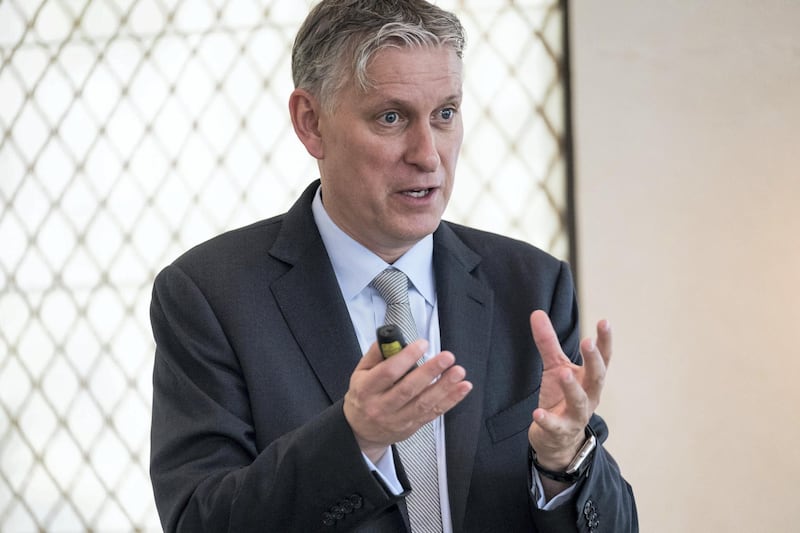Companies are too concerned with potential job losses from the rise of artificial intelligence and should instead be looking at how to augment roles to keep up with the data revolution, technology experts said on Monday.
Speaking at a press briefing held by Gartner on 2018 Middle East technology trends, Peter Sondergaard, executive vice president and global head of research at Gartner Research and Advisory, said that AI has long been criticised as being a “disruptor” of jobs and although it is expected to cause the loss of 1.8 million jobs by 2020, 2.3 million new ones will be created.
“We believe [AI] augments, it doesn’t destroy every job,” he said.
“Some of [the new roles] may be temporary, over a 10-year timeframe, because they might be about a teaching system to create the foundation of brand new job categories.
“But AI isn’t a disruptor of jobs. Young people right now that are in school are likely going to a job category that doesn’t exist today using skills that we don’t know we need and trying to do something in a business that doesn’t exist today."
Arun Khehar, senior vice president for applications business at Oracle ECEMEA, told The National: "We first need to get past sensational headlines about robots 'stealing our jobs'."
“Innovation and the use of tools to make life easier have been a marker of progress throughout history, through agricultural and industrial revolutions. We are now in a data revolution and as we progress, some of the roles people do will change.
“But progress has consistently brought the creation of new jobs, new business models and whole new industries.”
Mr Sondergaard also said that businesses will have to change how they engage with people to tackle the difficult task of changing the company’s culture so they can implement change quickly.
Resources and talent are other challenges that will require concerted efforts to address.
According to Gartner, AI technologies will be present in almost every new software product by 2020, doing more to change how we live and work than any other technology since the internet.
According to Dr Fadi Aloul, head of computer science and engineering at the American University of Sharjah, machine learning and AI algorithms have been there for a while, but for them to work well, we need other supporting resources.
“They include powerful computing machines and cloud servers, which are there now and are opening the door to make fantastic things that will make our lives easier,” he said. “Today we have fast connectivity on almost every phone so it’s easy to upload the data that AI and machine learning need a lot of to be smart.”
_________________
Read more:
The machines are taking over: how AI will change life in the UAE over the next 50 years
Governments must control the rise of Artificial Intelligence, experts say
UAE to phase out immigration officers in favour of AI by 2020
_________________
The major parts of AI will be taken up through simple implementations over the next couple of years, but a lot more work needs to happen within companies to really exploit it.
Mr Sondergaard said leadership mattered more than ever today. “There is a need for using technology for change,” he said, and that “has to do with the right leadership”.
Last October, the Government launched the UAE Strategy for Artificial Intelligence and appointed Oman bin Sultan Al Olama as the country's first Minister of State for Artificial Intelligence.
The UAE seeks to be a major hub for developing AI techniques and associated legislation, with its 2071 Strategy founded on the concept of integrating AI across the Government and private sectors. The aim is to include AI in services, across sectors and in all future infrastructure.






